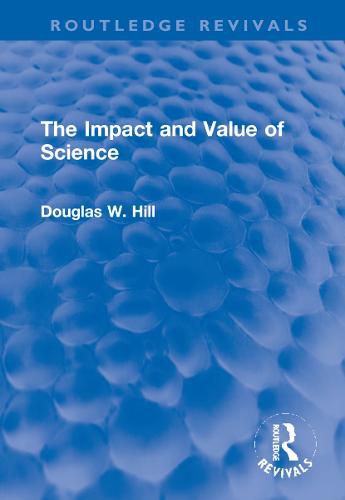Readings Newsletter
Become a Readings Member to make your shopping experience even easier.
Sign in or sign up for free!
You’re not far away from qualifying for FREE standard shipping within Australia
You’ve qualified for FREE standard shipping within Australia
The cart is loading…






First published in 1945, The Impact and Value of Science is both a plea and a challenge: a plea for more and more science - not to increase the sum total of technical knowledge nor to extend present material amenities, but in the words of the author for the sake of mental maturity. It is a challenge to try the method of science. Every man is a scientist and every scientist a useful citizen.
Dr. Hill has been both an industrial and academic scientist but here he is concerned with something much wider than textbook conception of science. He gives a clear answer to those who argue that scientific progress is leading to man’s destruction by showing that if the scientific method is applied in non-scientific fields - in religion, ethics, politics - man will learn how to use the technical inventions of science as stepping stones in social and economic progress. With space tourism and climate crisis marking the two ends of scientific development in current times, this book is of value to everyone but especially to students of climate change, public policy and ethics.
$9.00 standard shipping within Australia
FREE standard shipping within Australia for orders over $100.00
Express & International shipping calculated at checkout
First published in 1945, The Impact and Value of Science is both a plea and a challenge: a plea for more and more science - not to increase the sum total of technical knowledge nor to extend present material amenities, but in the words of the author for the sake of mental maturity. It is a challenge to try the method of science. Every man is a scientist and every scientist a useful citizen.
Dr. Hill has been both an industrial and academic scientist but here he is concerned with something much wider than textbook conception of science. He gives a clear answer to those who argue that scientific progress is leading to man’s destruction by showing that if the scientific method is applied in non-scientific fields - in religion, ethics, politics - man will learn how to use the technical inventions of science as stepping stones in social and economic progress. With space tourism and climate crisis marking the two ends of scientific development in current times, this book is of value to everyone but especially to students of climate change, public policy and ethics.